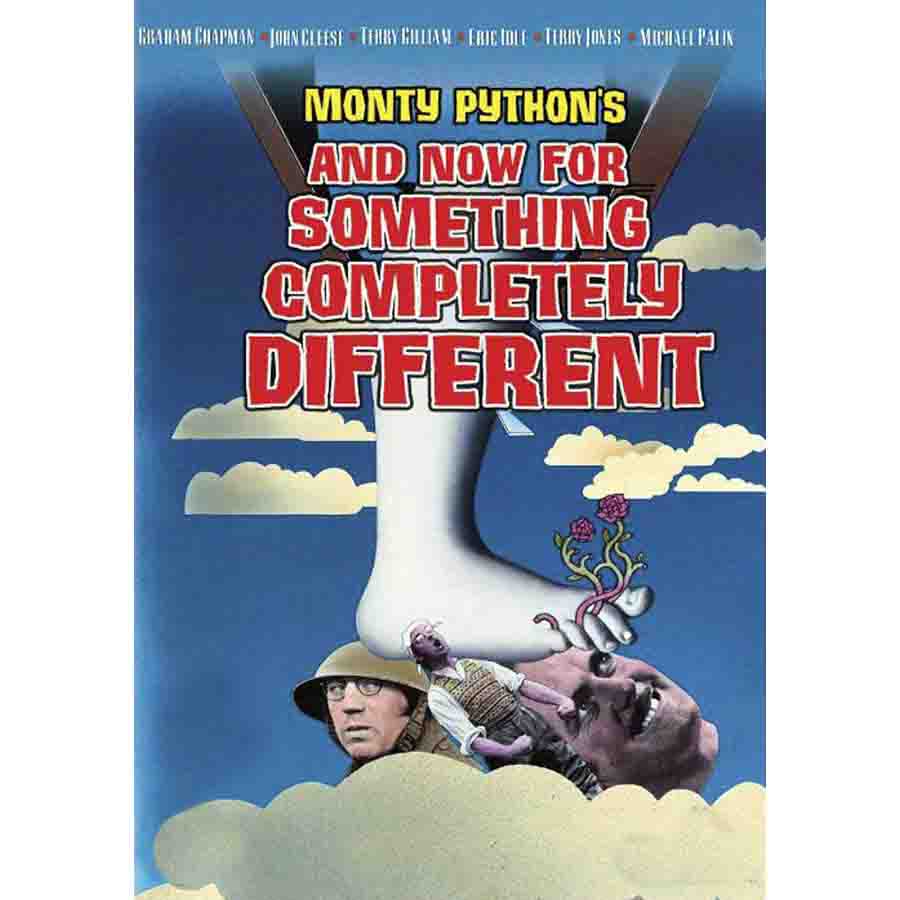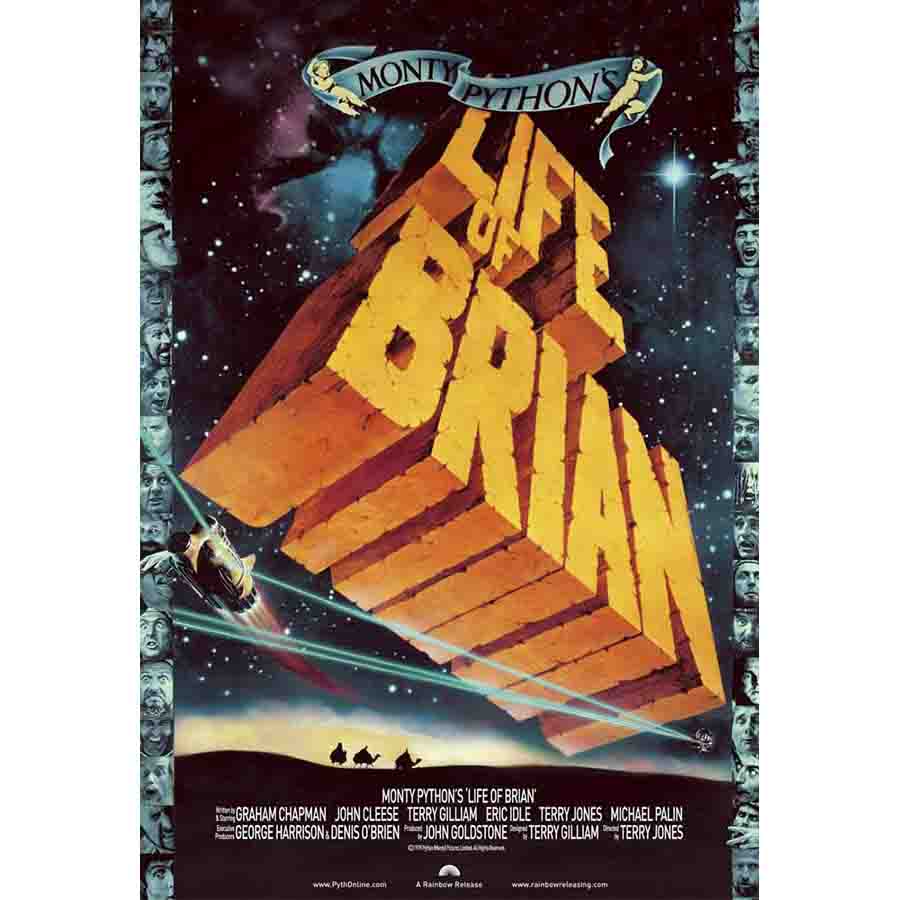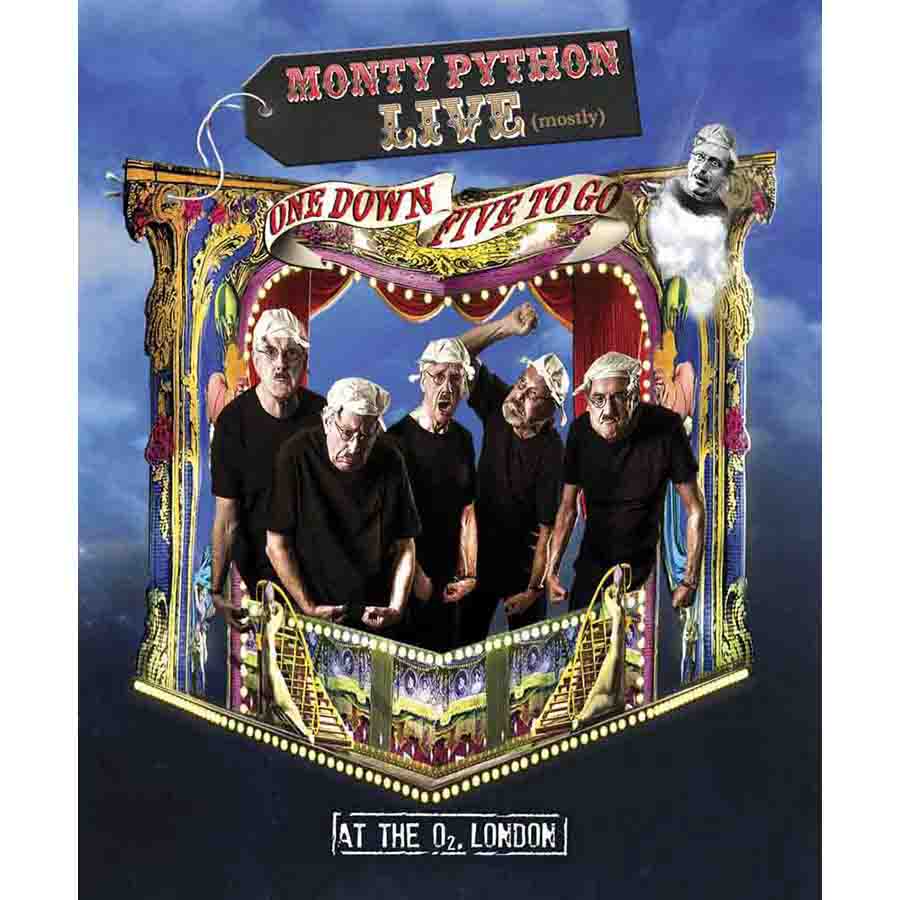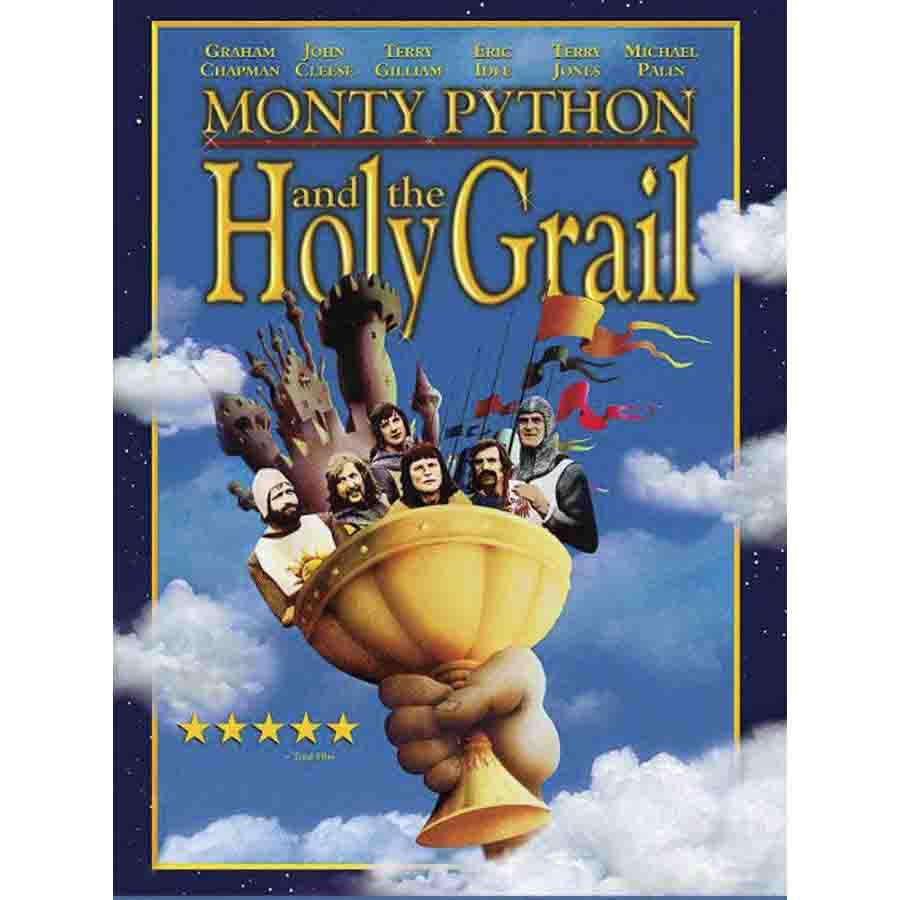- FILMS -
-
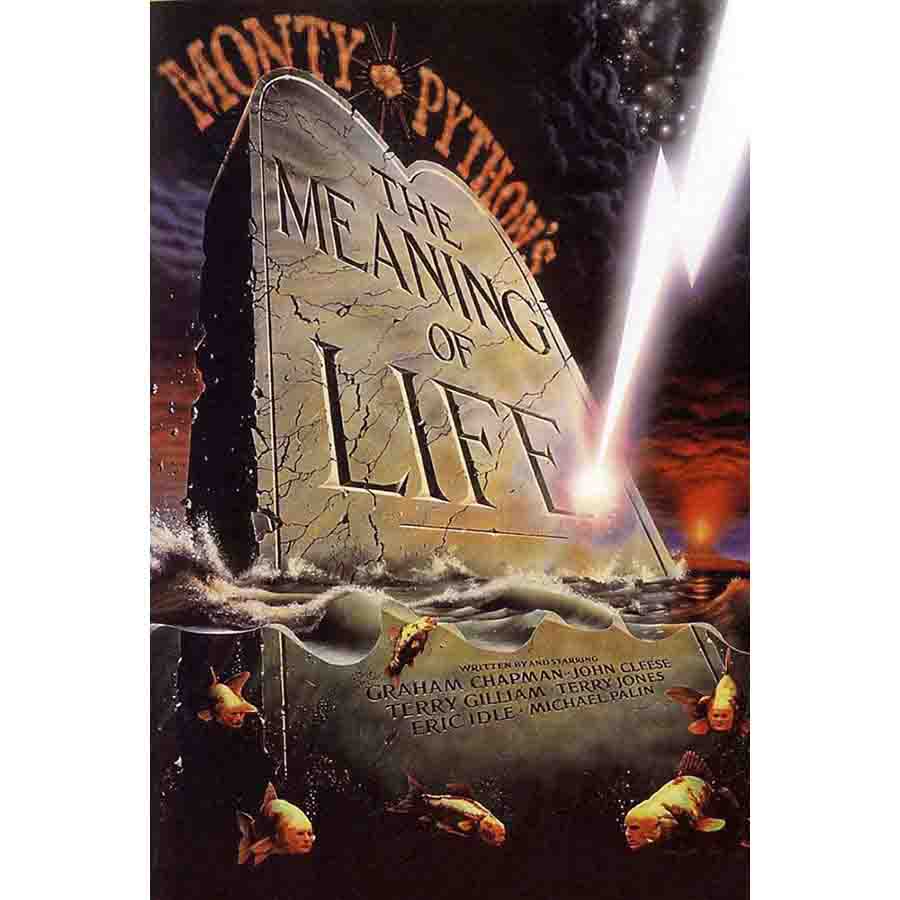
Monty Python's The Meaning of Life (1983)
"Monty Python's The Meaning of Life"
Director: Terry Jones
Producer: John Goldstone
Original Theatrical Release Date: 31 March 1983 (U.S.), 23 June 1983 (U.K.)
Original Running Time: 1:47
Director's Cut: 1:56
The group's last feature film with Graham Chapman, "The Meaning of Life", is a sketch film tied together as a study of the perilousness and absurdity of human existence – a description that doesn’t do justice to how funny it is. There is blood, sex and violence, and some of the most surreal passages of any Python work, on the topics of birth, death, and all the bothersome business of living in-between. It comes across visually as a mix of Federico Fellini, Ingmar Bergman and Busby Berkeley – with projectile vomiting! But the film's innate message is simple and sweet: We are all miracles of birth, so why not be nice to all the other miracles of birth out there.
Synopsis
The presentation opens with a short film, “The Crimson Permanent Assurance”, directed by Terry Gilliam, that tells the saga of accountants who take up arms as pirates and sail their small office building on the high seas of international finance, laying waste to multinational corporations.
The main feature is divided into seven sections, each dramatizing a particular topic of one's life: "The Miracle of Birth" examines the technological and financial apparatus constructed around a baby's delivery, followed by "Every Sperm Is Sacred," a song-and-dance ode to the Catholic Church's proscription of contraception. "Growth and Learning" details the teaching regimens of English schoolboys, from religion to sex. "Fighting Each Other" casts the audience into trench warfare, and the social niceties that endure even under fire.
In "Middle Age," American tourists at a fine dining establishment have absolutely nothing to say. "Live Organ Transplants" is just that (and if you need a reason to keep your organ donor card after all the blood spilled, there is Eric Idle's "Galaxy Song," which marvels at the universe and our place in it).
In "The Autumn Years," a barely-walking example of human gluttony, Mr. Creosote (Terry Jones), proceeds to eat his way through an entire French restaurant, keeping very little down in the process. "Death," in the form of the Grim Reaper (John Cleese), finally arrives at a dinner party, taking the guests away to Paradise, where none other than Tony Bennett (Graham Chapman) and buxom chorus girls serenade one and all with the spectacle of "Christmas in Heaven."
The film's main linking device is the most Pythonic element of the film: A group of fish (played by the six Pythons) repeatedly muse about the meaning of life as they witness fellow fish being served up on plates in a restaurant. They also at times call out the filmmakers for not getting to the point ("Not much happening at the moment, is there?").
The Making of
Producer John Goldstone sold the concept to Universal Pictures just on the basis of a one-page synopsis, and song lyrics written by Eric Idle. ("There's everything in this movie, everything that fits, from the meaning of life in the Universe, to girls with great big tits.")
The film's stand-out production number was "Every Sperm Is Scared." The song, written by Terry Jones and Michael Palin and choreographed by Arlene Phillips ("Annie"), features street urchins, nuns, stilt-walkers and others dancing and singing in the streets of Yorkshire. "We weren't deliberately parodying anything," said Jones. "It was in a very 'Oliver!' style, although I'm not sure I've ever seen 'Oliver!' But I know what it's like!"
The most unforgettable scene, however, was the Mr. Creosote sketch, which brought projectile vomiting to new heights of cinematic artistry. At one point the crowd in the restaurant is sprayed with the vomit concoction, filled with vegetables and Russian salad dressing: "The catapult held like 20 or 30 gallons," said Jones, "and hit everything spot-on. But for that we had to select the extras with the cheap costumes!"
In addition to his animated bits, such as a family of falling leaves, Gilliam contributed the 15-minute "The Crimson Permanent Assurance," in which he was able to test out miniature special effects techniques that would be invaluable later in shooting "Brazil." "It was originally a cartoon," Terry Gilliam said of his short film. "By then I was so terribly keen to escape from animation. I wanted to convince them that I could make my own little film. I had my own sound stage, my own everything."
"We kept going to his studio next door," recalled Jones, "and he had these huge sets compared to what we had."
The segment was initially planned to be part of the main film, but grew longer and longer, and according to Gilliam, didn’t match the rhythm of the rest of "Meaning of Life." "I cut it shorter and shorter and the others kept saying, 'No, it's still too long.'"
So the entire segment became a separate film. "And then it became a better idea," said Gilliam. "Because not only is it a short subject before the film, but then it attacks the main film later on. . . . Still the great thing with Python was that we were able to do this, to have that kind of freedom to just pull things apart completely."
Reception
"The Meaning of Life" captured the Jury Prize at the 1983 Cannes Film Festival.
By David Morgan, 2014
AVAILABLE FOR DOWNLOAD HERE

